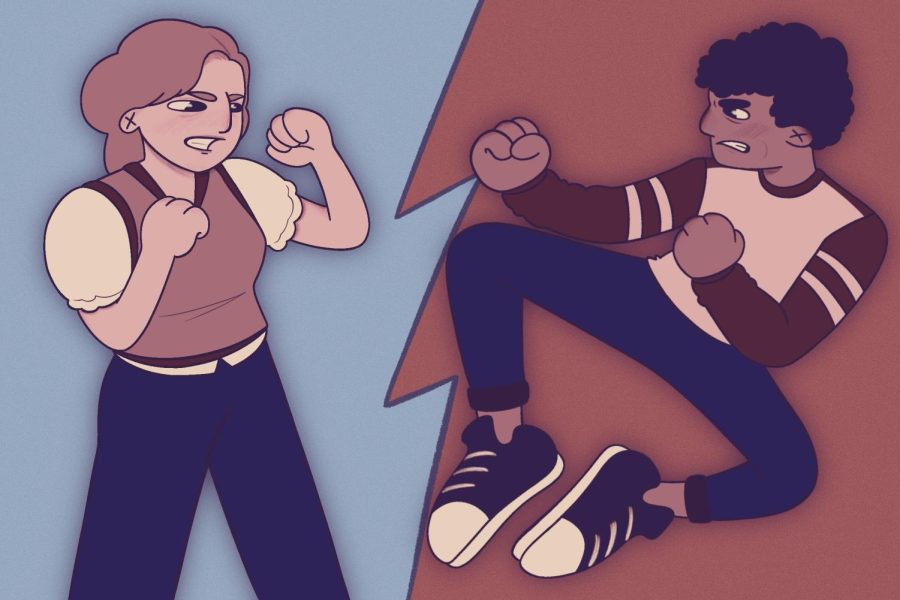Why conflict in classrooms can be good
January 18, 2023
I remember the first time I received a harsh critique in the classroom. I was presenting on something that was important to me, so my classmate’s critique felt like a personal attack. When class was over, I bolted out and cried on the way home.
My classmate’s comment threw me off guard. It was so blunt, so brutal and so true. In a class full of students pursuing the same career as me, I initially felt inadequate after receiving the criticism. But I’ll never forget that day in class because it caused me to look internally at my own biases and helped me grow.
In a world where conflict is inevitable, the key is to generate positive conflict. This can be especially valuable in the classroom, and it can be an ideal space to practice.
Lori Lewis-Conerly, adjunct assistant professor at the Steve Hicks School of Social Work, said some forms of conflict foster growth and creativity in the classroom.
“Positive conflict can be very productive. It can help generate creativity within the learning experience (and) helps with learning how to solve problems and how to manage the perspective of others. It helps to build upon a skill set that is necessary for effective communication and active listening,” Lewis-Conerly said. “And sometimes that comes about as a result of hearing something that is directly opposite of what you thought or what you believe or how you perceive something to be.”
Not all conflict is productive, and in a classroom setting, the professor sets the tone for classroom discussion. It’s their job to manage and mediate in a way that ensures what is being said is helpful rather than harmful.
While the professor facilitates the conflict, students are ultimately responsible for maintaining a respectful dialogue. This means not attacking someone’s personality, but rather engaging with genuine curiosity. This is what differentiates constructive criticism from destructive criticism.
Destructive criticism is harmful because it makes the space no longer feel safe. Instead of the classroom being a place for growth, it becomes a hostile environment, and none of the dialogue is effective.
But that doesn’t mean passion isn’t allowed — that’s actually what makes conflict so important. Being able to discuss the things most important with people who may think differently is the only way for students to appreciate the diversity of their classroom and learn from one another.
Students, don’t shy away from opposing views. Enjoy the diverse perspectives of those around you and be open to constructive criticism. Show your classmates respect by actively listening and taking in what they have to say. Embrace the discomfort and everyone will be better because of it.
Lawrence is a social work senior from Austin, Texas.
















